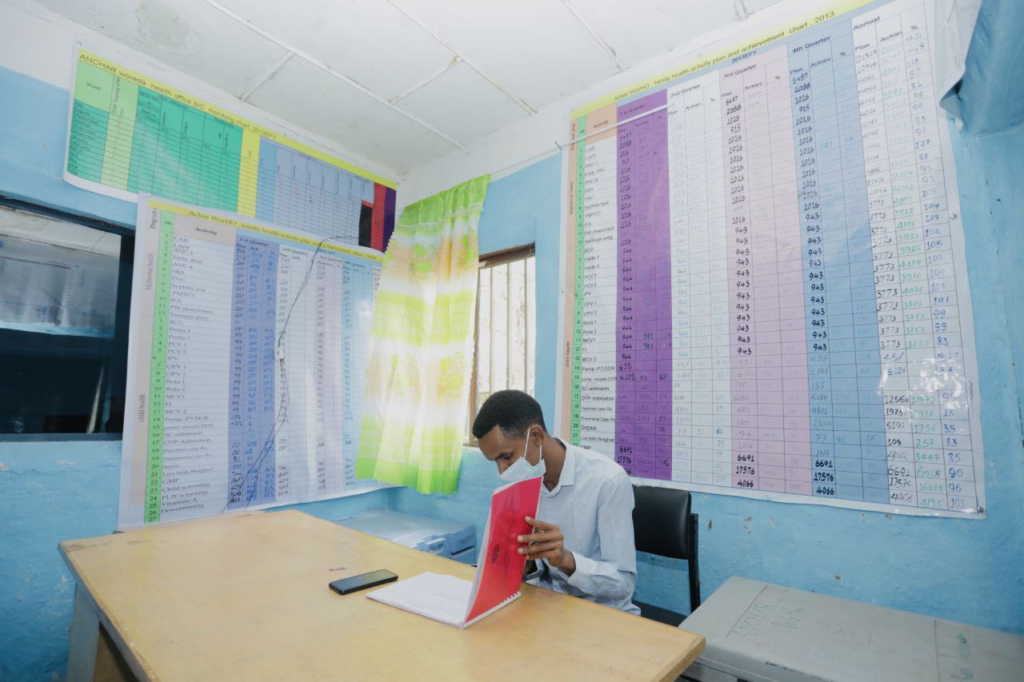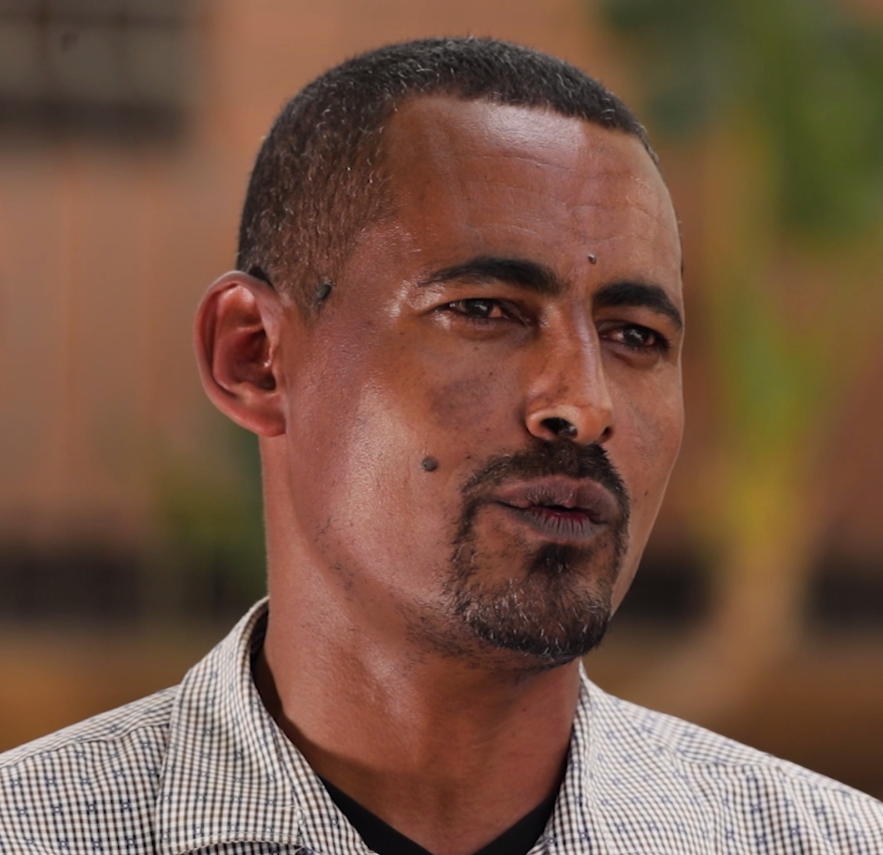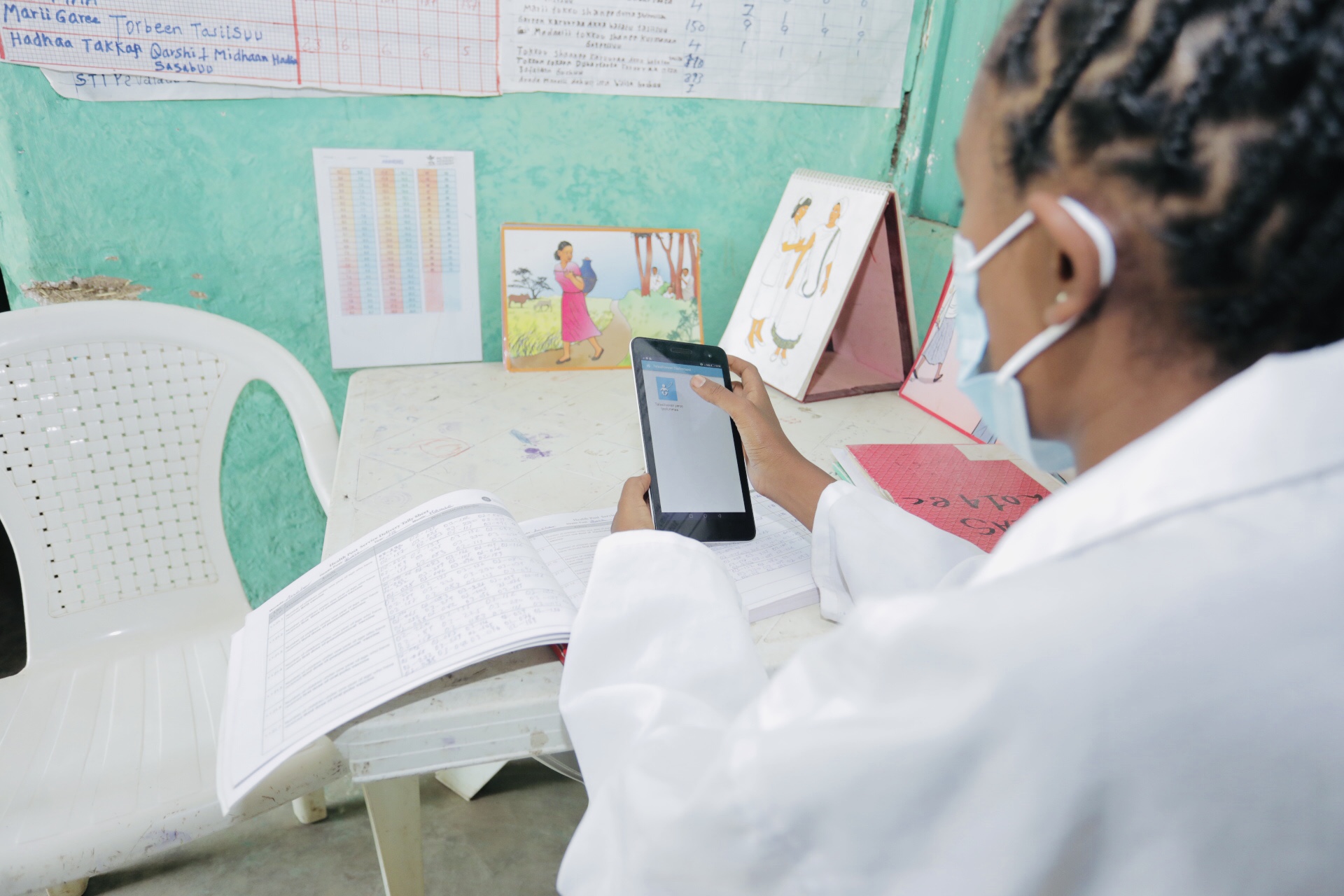Electronic Community Health Information System (eCHIS) Boosts Data Quality and Improves Services in Oromia Region
The electronic Community Health Information System (eCHIS) is one of the information revolution reforms prioritized by Ethiopia’s Ministry of Health (MOH). The eCHIS is utilized by community-based health extension workers (HEWs) for household registration, as a tool for service delivery, data recording, and reporting. It also facilitates referral communications between a health post and a health center.
The MOH scaled up eCHIS in over 7,155 agrarian health posts across Ethiopia, and DHA supported 2,200 (30.7%) of these health posts. Anchar woreda in the Oromia Region was one of the woredas where eCHIS was implemented. The woreda completed the registration of households, household members, and household properties. The health posts within the woreda also used eCHIS to track the implementation status of the health extension program packages and HEWs’ activities, and to strengthen linkages between health posts and health centers.
Recognizing the critical role of eCHIS in determining the actual population size in the woreda, the Anchar kebele administration signed a legal document affirming the population and households reported through eCHIS are accurate. Furthermore, the woreda health office is using the data for target setting, resource allocation, and as a denominator for reporting. Ato Aliyi Mohammed, monitoring and evaluation coordinator for Anchar woreda, says:

“I’m grateful to DHA for its regular and continuous financial and technical support and follow-up.”
Moreover, the impact of accurate population data obtained through eCHIS has the potential to serve other sectors to facilitate decision-making at the woreda level. For instance, data from eCHIS can be used by other sector offices in the woreda, including the woreda administration, women’s affairs, education, agriculture, and non-health sector interventions, such as the Productive Safety Net Program, which provides food security for families living below the poverty line.
Ato Ahmed, Anchar woreda administrator, at a biannual data review meeting, said
“Anchar woreda health office, with its stakeholders, has enabled us to capture accurate household and population data for effective resource utilization in our woreda, especially for the Productive Safety Net Program and care of pregnant and lactating mothers and linkage between outpatient therapeutic programs to [the] Productive Safety Net Program,”
Access to accurate data on indicators such as the size of the catchment population, pregnant and lactating mothers, and children under the age of five also aided the woreda in allocating a budget for the coming year. This shows that data collected through the eCHIS in Anchar woreda is reliable, actionable, can be used by sectors beyond health, and can serve as a model for the overall national eCHIS implementation.
Article by:

Field Data Use Officer, USAID Digital Health Activity
